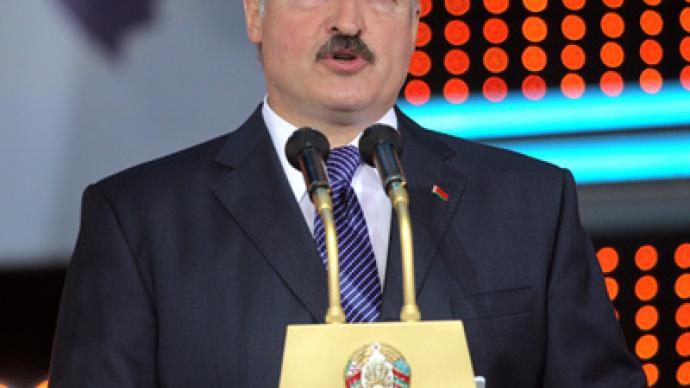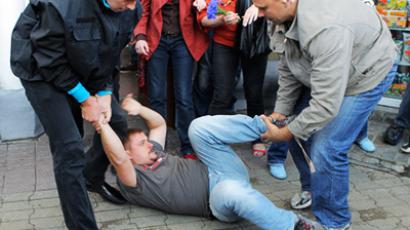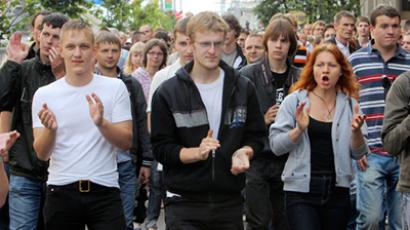Lukashenko says ‘Hush!’ to flash-mobs

Belarusian leader Aleksandr Lukashenko has ratified a new law targeting public gatherings, including flash-mobs organized through the Internet. The latest move is viewed by many as a hardening of the regime’s stance on freedom of assembly.
Under the new legislation, a protest or political rally can be held only with thepermission of the local authorities. It defines a rally as any “mass gathering of people in a fixed place at a fixed time.”The law specifically targets flash-mobs organized via the Internet. It follows a wave of “silent protests” against the regime which had been taking place across the country since June in response to a brutal government crackdown on the opposition last year.Moreover, there have been amendments to the existing legislation on political activity which introduce criminal charges for receiving funds from abroad. Public organizations are also banned from keeping money, or any assets, in banks located aboard.Belarusian Interior Minister Anatoly Kuleshov described the new law as “the most democratic compared to similar laws in developed democratic states.” Anatoly Rubinov, a top lawmaker, added that the law was “well-timed.”“The world is swept by a wave of protests. Authorities in these countries are forced to use rubber bullets and deploy water cannons and batons. Why? Because they failed to establish order in the organization of mass gatherings,” he said.Human right activists and international organizations such as the OSCE have expressed their discontent with the new legislation, saying it would “further limit fundamental rights of freedom of assembly and association” secured by the Belarusian constitution and international law.Those unhappy with the current regime in the former Soviet republic are obliged to think carefully before taking to the streets as they run a constant risk of ending up behind bars. In June, opposition forces organized the “Revolution through Social Networks” campaign. The rallies against Lukashenko, who has been dubbed “the last European dictator,” have been held every Wednesday in the capital, Minsk, for around two months. Protesters would gather in central squares across the city, standing silently or sometimes clapping their hands and stamping their feet.Now, however, the new legislation has left the Belarusian opposition with few avenues to pursue in their efforts to get heard.














